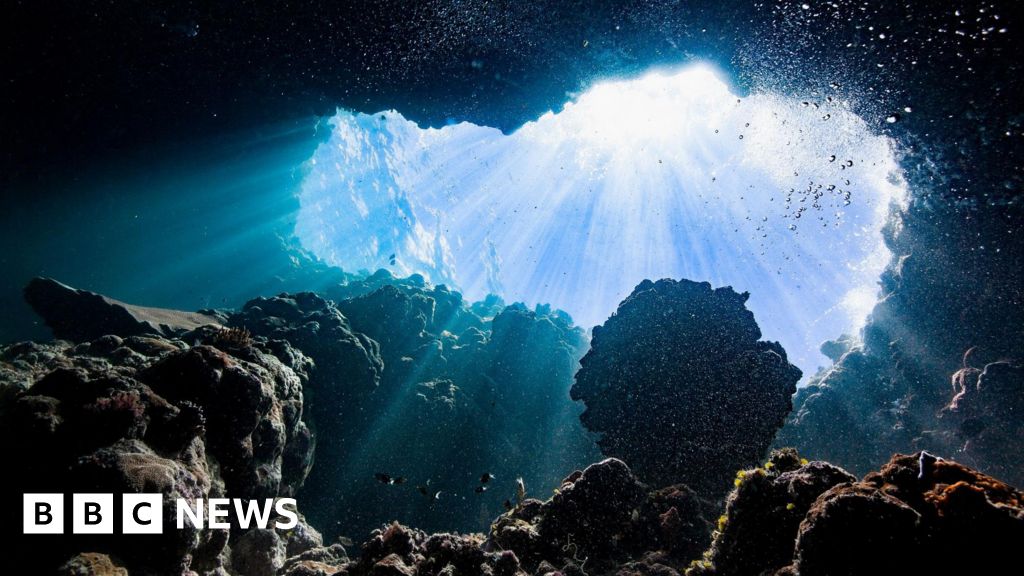- cross-posted to:
- [email protected]
- [email protected]
- cross-posted to:
- [email protected]
- [email protected]
Scientists have discovered “dark oxygen” being produced in the deep ocean, apparently by lumps of metal on the seafloor.
About half the oxygen we breathe comes from the ocean. But, before this discovery, it was understood that it was made by marine plants photosynthesising - something that requires sunlight.
Here, at depths of 5km, where no sunlight can penetrate, the oxygen appears to be produced by naturally occurring metallic “nodules” which split seawater - H2O - into hydrogen and oxygen.
Several mining companies have plans to collect these nodules, which marine scientists fear could disrupt the newly discovered process - and damage any marine life that depends on the oxygen they make.



This is the best summary I could come up with:
“I first saw this in 2013 - an enormous amount of oxygen being produced at the seafloor in complete darkness,” explains lead researcher Prof Andrew Sweetman from the Scottish Association for Marine Science.
And because these nodules contain metals like lithium, cobalt and copper - all of which are needed to make batteries - many mining companies are developing technology to collect them and bring them to the surface.
And his discovery, published in the journal Nature Geoscience, raises new concerns about the risks of proposed deep-sea mining ventures.
The scientists worked out that the metal nodules are able to make oxygen precisely because they act like batteries.“If you put a battery into seawater, it starts fizzing,” explained Prof Sweetman.
And this discovery suggests that the nodules themselves could be providing the oxygen to support life there.Prof Murray Roberts, a marine biologist from the Univerisity of Edinburgh is one of the scientists who signed the seabed mining petition.
“There’s already overwhelming evidence that strip mining deep-sea nodule fields will destroy ecosystems we barely understand,” he told BBC News.“Because these fields cover such huge areas of our planet it would be crazy to press ahead with deep-sea mining knowing they may be a significant source of oxygen production.”Prof Sweetman added: “I don’t see this study as something that will put an end to mining.“[But] we need to explore it in greater detail and we need to use this information and the data we gather in future if we are going to go into the deep ocean and mine it in the most environmentally friendly way possible.”
The original article contains 793 words, the summary contains 265 words. Saved 67%. I’m a bot and I’m open source!